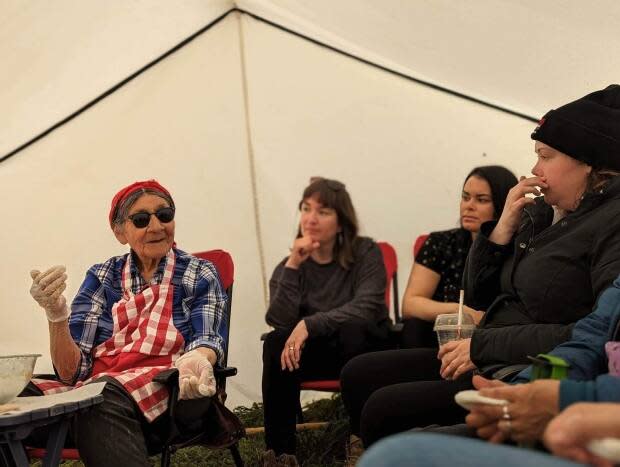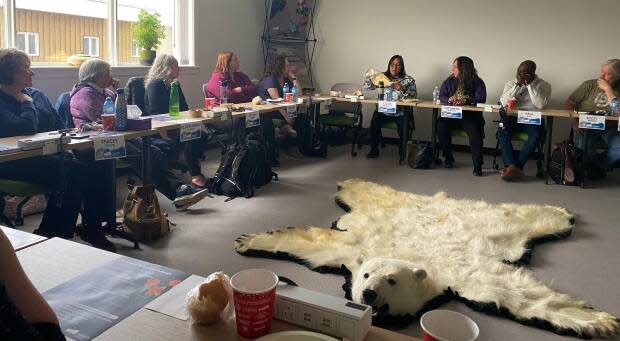MUN's Labrador campus launches 1st graduate programs in Arctic and Subarctic studies

The Labrador campus of Memorial University has launched its first graduate programs.
Students will now be able to pursue a graduate diploma, master's degree or PhD in Arctic and Subarctic futures at the campus, in Happy Valley-Goose Bay.
"This program is a dream, it's been years in the making," said Ashlee Cunsolo, dean of the school of Arctic and Subarctic studies.
Access to education, especially post-secondary or graduate education, has been challenging for people in Labrador, so having this program is historic, Cunsolo said.
"So many students have to leave home, and leave families, and communities, and their lands and the waters and the cultures that really nourish them and where they really feel connected and where they belong to pursue education and that's a huge barrier for many people," she said.

The first cohort of students, who started their studies this month, includes people from their early 20s to mid-60s. They are a mixture of students from Labrador and Nunavut and are focused on a variety of themes, including primary education and Indigenous self-determination.
"I was amazed and so excited to be able to do this right here in Labrador," said PhD student Ola Andersen.
Andersen is a retired teacher who hopes to focus her PhD on bringing Indigenous knowledge into primary and secondary education. Having a variety of age groups in the program means she can get help with technology and share her knowledge, she said.

The program will weave academic learning with traditional skills and local Indigenous knowledge. Faculty member Sylvia Moore said Indigenous knowledge has historically not been valued in post-secondary education so the program will merge the two.
"It's an opportunity to bring together the knowledge that's in Labrador for the people who live here, the ancestors, the elders, the people who know their cultures and want to stay grounded in their cultures as they move on in their learning and their dreams of education," Moore said.
The graduate program starts each May and undergraduate degrees are not required if a person demonstrates lived and cultural experiences, prior learning and professional background. The program courses are a mixture of online, in-person and weekend-long intensive courses.

To help overcome financial barriers to graduate work, Cunsolo said, there are scholarships for Labrador students and Indigenous students, and the university is working to add more scholarships.
"What I'm most excited about and most inspired by is the students who are coming in and trusting us with their educational journey," Cunsolo said. "I'm just so endlessly inspired to think, 'What are they going to do next year, or the year after?'"


